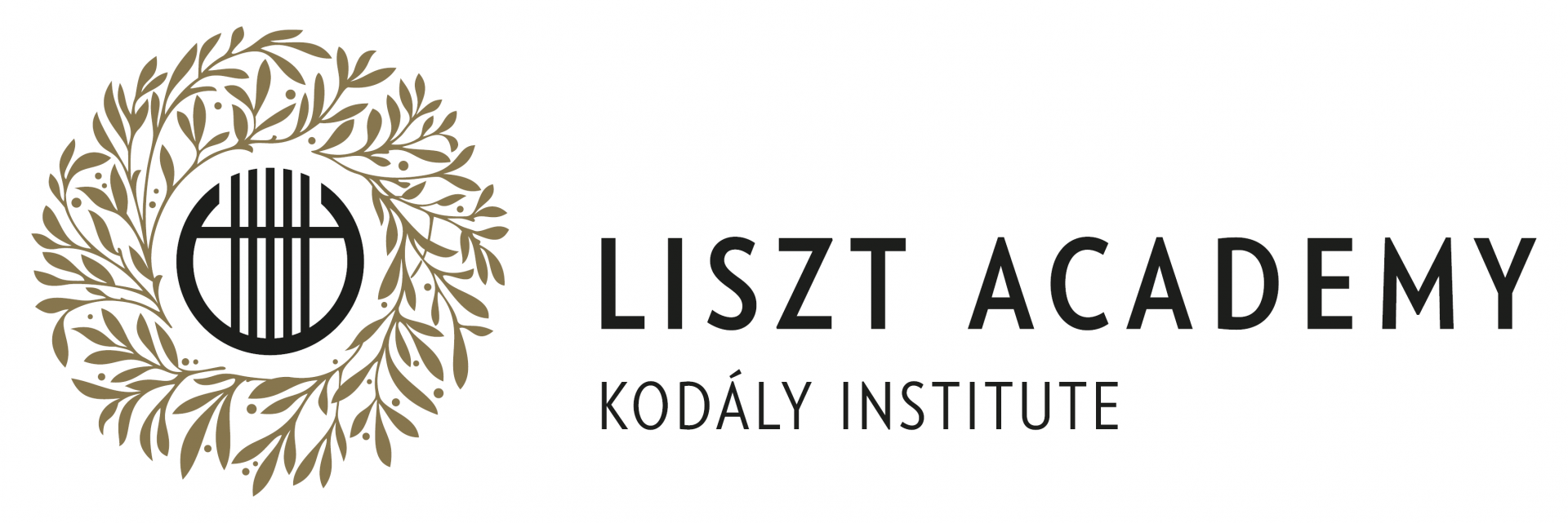Kodály anniversary events, Autumn 2017 - summary
On the occasion of the double Kodály anniversary, teachers of the Academy of Music and its Kodály Institute were invited to several partner universities and institutions in many parts of the world to present Kodály's music pedagogical heritage and compositions in courses and concerts.
In Tokyo, on 14 October, the orchestra of the Tokyo University of the Arts, conducted by Professor László Tihanyi and the young folk music teacher Dániel Szabó gave a full-length concert in the concert hall of the University, where Kodály's Galántai Dances and the Háry János suite were performed as well. In preparation for the concert, the Japanese students could deepen their knowledge of the Hungarian musical heritage, and the concert was a great opportunity to introduce the lesser known dulcimer to the Japanese audience. On the previous day, Dániel also gave a dulcimer workshop for the students of the university.
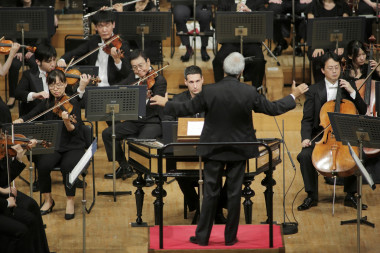
| 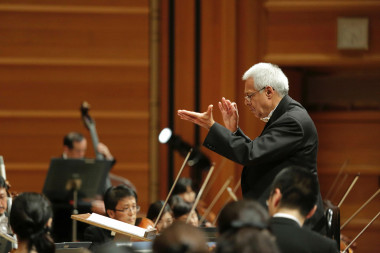
| 
|
In Montreal, on 15-16 October, the Piano Department of the Schulich School of Music at McGill University hosted Professor Kálmán Dráfi, Head of Department at the Liszt Academy, who held an excellent piano masterclass on Hungarian composers' works.
In Tbilisi, on 19 October, Dávid Báll, from the Piano Department of the Liszt Academy, together with Georgian artists Nino Jvani and Teimuraz Kharadz, gave a festive concert of Kodály's and Bartók's piano works, organized by the Hungarian Embassy. Dávid Báll also talked about the piano works at the concert hall of the Georgian National Music Academy. Two folk music students, Sára Bolyki and Borbála Sasvári, who are currently studying with Erasmus scholarships in Tbilisi, sang the original folk songs that inspired the compositions. After the concert, Dávid Báll held a two-day masterclass for Georgian pianist students.
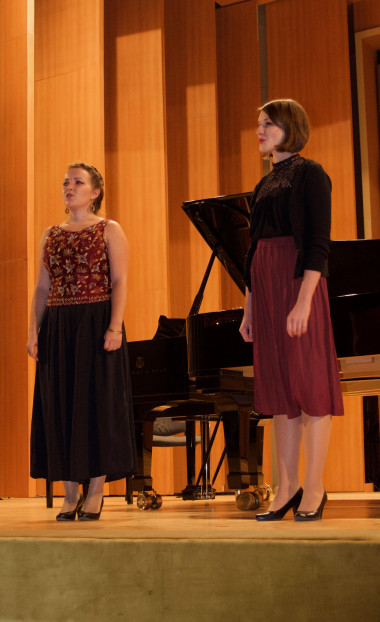
| 
| 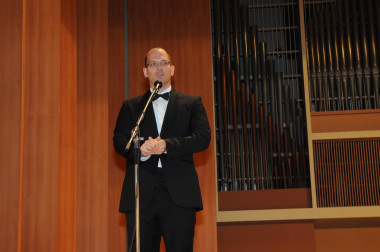
|
The Academy of Music was also invited to two Kodály concerts, at the Conservatory Week Festival in St. Petersburg, where Kodály's art songs and their folklore roots were presented by András Jánosi, folk violin teacher, and Anna Fürjes (voice) and Sámuel Tóth (piano). Mr Jánosi also held a seminar on Hungarian folk music for students from St. Petersburg.
|
|
In The Hague, on 17-19 November, 2017, the celebration of the 135th anniversary of the birth of Zoltán Kodály was held in the framework of a four-day festival in cooperation with the Hungarian Embassy in The Hague, the Ferenc Liszt Academy of Music in Budapest, the Royal Academy of Music in The Hague and the National Youth Choirs in the Netherlands. The festival was enriched with master classes, lectures and concerts.
At the Royal Academy of Music in The Hague, in the framework of the one-year master programme called "music as a profession", a Kodály pedagogical training course was held on 16-19 November by the professors of the Liszt Ferenc Academy of Music: Norbert Nemes László, director of the Kodály Institute, Anikó Novák pianist, and Körtvési Katalin tutor of Kokas Pedagogy. The Budapest delegation was well complemented by Géza Szilvay, professor at the Sibelius Academy in Helsinki, who presented the "Colourstrings" teaching method based on the Kodály concept. Participants of the master classes included Dutch music teachers and musicians.
On 17 November, at the Hague Palace of Peace, the seat of the Supreme Court of The Hague, lectures were held about Kodály's oeuvre, moderated by the director of the library, Jeroen Vervliet. Vincent Wintermans, representative of the UNESCO Office in The Hague, presented the UNESCO Cultural Heritage Program, giving a historical overview of how the Kodály Method got included in the UNESCO Cultural Heritage List. László Norbert Nemes praised Kodály's oeuvre and his spiritual heritage accompanied with singing and dancing. In addition to the presentation, two artists of the Royal Academy of Music in The Hague, violinist Joe Puglia and cellist Sietse-Jan Weijenberg, played Kodály's Duo for violin and cello.
On 18 November, a beautiful concert was given in the Kloosterkerk, a beautiful church in the center of The Hague. The evening was opened by singer Irene Verburg with Kodály's songs, accompanied by Anikó Novák (piano). The Dutch Youth Mixed Choir and the Dutch Young Women Choir, conducted by Wilma ten Wolde and Norbert László Nemes, performed a wonderful repertoire with a large number of emblematic Kodály choral pieces, to a large audience of 300 people, where many members of the diplomatic corps working in The Hague and other distinguished guests were present. The choir was accompanied by young Hungarian organist Gábor András Virágh.
The closing moment of the Kodály Festival was the Children's Choir Festival at the Royal Academy of Music in The Hague on Sunday. There were four children's choirs from the Netherlands, with a total of about 120 children were singing. Participants were: the Viva la Musica Choir School in Drenthe, the Gelderland Choir School led by Katalin Szabó, the Kathedrale Choir School in Utrecht, and the Dutch National Children's Choir. Conductors of these children's choirs all use the Kodály method. During the concert, each choir sang four pieces, and in the big finale all the children sang together with Norbert László Nemes conducting.
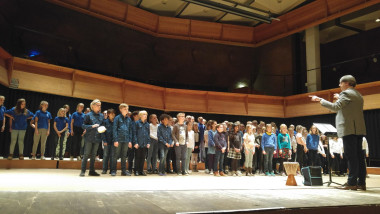
| 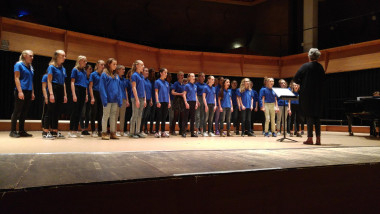
|
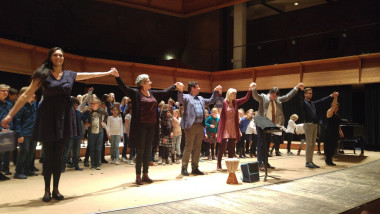
|
|
Videos about the four-day festival and the flashmob advertising the festival, made at the main station in The Hague, are available here: https://www.youtube.com/watch?v=tty4TYKvoSA and here https://www.youtube.com/watch?v=2oJ02jSB4Zc
Between 10 and 12 October 2017, at the Bucharest National Music Academy, there was a 3-day long seminar organized by the Hungarian Institute of Bucharest, where teachers of Institute, Sarolta Platthy (solfege and Kodály methodology), Dr. Orsolya Szabó (piano pedagogy and SZO-methodology, relative movement system) and Dr. Mónika Benedek (solfege and conducting) gave lectures and workshops. Participants of the seminar - not only professional musicians and music teachers, but also university students, doctoral students, nursery and school teachers, amateur musicians and non-music educators - could experience the principles of Kodály's music pedagogy, the beneficial effects of singing and relative solmisation, as well as the liberating power of movement in instrumental performing arts. In addition to the joint singing at the closing ceremony of the seminar, Gergő Nagy, a young pianist from Cluj, gave a solo concert.
In Lisbon, on 13 October 2017, the historic building of the Hungarian Embassy hosted the event where Ambassador Klára Breuer, Manuela Encarnacão, President of the Portuguese Music Education Association (Associação Portuguesa de Educação Musical), Norbert Nemes László, Director of the Kodály Institute and Cristina Brito da Cruz, a lecturer at the Lisbon Music College, signed a document on the establishment of the Kodály Center in Portugal. Under the Code of Conduct, the Portugal Kodály Center will function as an autonomous part of the Portuguese Music Education Association. At the ceremony, Ambassador Klára Breuer awarded the gold medal of the Hungarian Order of Merit to the Kodály Center's founding director, Cristina Brito da Cruz, acknowledging and thanking her for her dedicated, multi-decade work of spreading and promoting the Kodály method in Portugal. The choir of young Portuguese musicians and music teachers (Vozes Kodály), who studied at the Kodály Institute in the past, performed Portuguese (Carrapatoso and Lopes Graça) and Hungarian (Kodály) works.
A Kodály seminar was also held in Lisbon under the leadership of Norbert László Nemes, which helps the professional development of Portuguese music teachers. Because of the scarcity of financial resources, these previously held seminars have been missing for years, so the interest this time exceeded expectations. The course is a fundamental pillar of the Kodály pedagogy in Portugal, complementing education in the Lisbon Music Academy and the Erasmus-funded Kecskemét study tours. The events had a very significant direct Portuguese press coverage, the Diário de Notícias daily newspaper reported in a two-page, representative article.
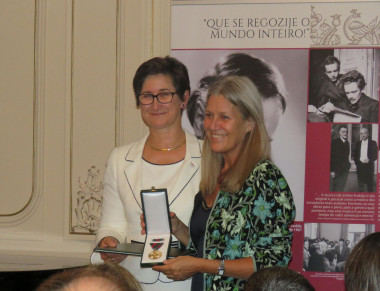
| 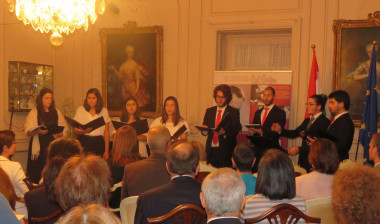
|
From 23 to 26 October 2019, Sarolta Platthy held a three-day music pedagogy seminar at the Latvian National Academy of Music in Riga.
Most of the participants were students of the Academy of Music, while others were practising music teachers. The seminar, after an introductory lecture on Kodály's musical education concept, focused primarily on the versatility of singing-based skills development, starting from the musical mother tongue to the style of the various periods of music literature, through more practical work. It is known that in the Baltic States the level of music education is very high, but teaching is based on the so-called absolute score reading system, as opposed to the relative system of the Kodály method. The students who were very open, enthusiastic and interested, were surprisingly very adaptive, thanks to the fact that their methodology teacher was familiar with the relative solmization in practice. With the help of a variety of musical materials, with many singing exercises, the students' existing knowledge had been further deepened and their interests were arisen for studies in Hungary.
In London on 10 December, the St Mary Church in Rotherhithe Anglican Church hosted a festive concert with two masses: Mass in G by Ralph Vaughan Williams and Zoltán Kodály's Missa brevis. Two prestigious choirs - The Vigala Singers, formed by former students of the Royal College of Music Junior Department of London and the Resident Choir of the Budapest Academy of Music, the New Liszt Ferenc Chamber Choir - conducted by the renowned British conductor Joy Hill and Norbert László Nemes, performed the masses. Despite London's bad weather, there was a large audience at the concert, where the organ from 1764 was played by Gábor András Virágh. The day before the concert, Kodály teachers of the Guildhall School of Music Junior School, Cyrilla Rowsell, Christine Wrigley and Eszter Hargittai, held a demonstration course.
In addition to these events, 2-4-day master classes were organized during the autumn by Hungarian Cultural Institutes in the following cities and with the following teachers of the Kodály Institute:
Rome and Ljubljana: Norbert László Nemes, Judit Rajk, Anikó Novák, Yasmin Folini
Istanbul and Stuttgart: Norbert László Nemes, Judit Rajk, Anikó Novák, Katalin Körtvési.
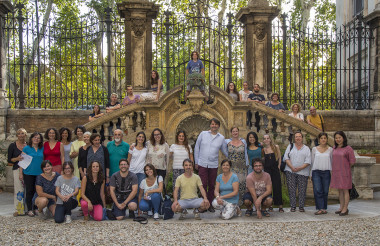
| 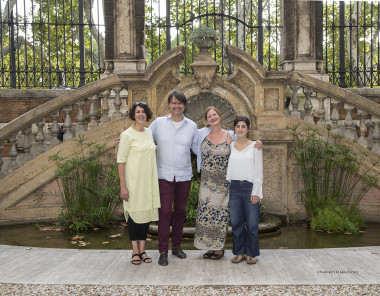
| 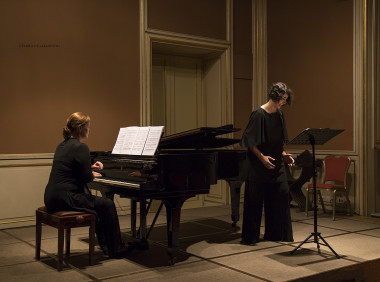
|
The financial background of all these programmes was ensured by Hungary's Ministry of Foreign Affairs and Trade from the budget of the International Kodály Year.


